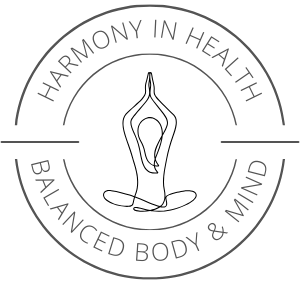The Mind-Body Connection: How Nutrition Affects Your Mental and Physical Health
The saying “you are what you eat” is more accurate than many people realize. Not only does nutrition play a vital role in our physical health, but it also has a profound impact on our mental well-being. The mind and body are closely interconnected, and what we put into our bodies can greatly affect how we think, feel, and behave. In this blog post, we will explore the mind-body connection and delve into how nutrition affects our mental and physical health.

To understand the relationship between nutrition and our mental health, we must first understand the intricate workings of our brain. Our brain is a complex organ that requires a constant supply of nutrients to function properly. This includes essential vitamins, minerals, and amino acids that are obtained through our diet. When we don’t provide our brain with the necessary nutrients, it can lead to cognitive impairments, mood disorders, and even mental illnesses.
One of the essential nutrients for our brain is omega-3 fatty acids. These fatty acids are found in foods such as fish, nuts, and seeds, and are crucial for brain development and function. Studies have shown that individuals with low levels of omega-3 fatty acids are at a higher risk for developing depression and anxiety. This is because these fatty acids play a crucial role in regulating neurotransmitters, the chemical messengers in our brain that affect our mood and emotions.
Another vital nutrient for our brain is B vitamins, specifically B12 and folate. These vitamins are involved in the production of serotonin, a neurotransmitter that regulates mood, sleep, and appetite. Low levels of B vitamins have been linked to depression, fatigue, and cognitive decline. It is essential to consume foods rich in B vitamins, such as leafy greens, legumes, and whole grains, to maintain optimal brain health.
In addition to affecting our mental health, nutrition also plays a significant role in our physical health. The foods we eat can either fuel our bodies or harm them. Consuming a diet high in processed foods, sugar, and unhealthy fats can lead to chronic diseases such as obesity, diabetes, and heart disease. These conditions not only affect our physical well-being but can also have a negative impact on our mental health.
On the other hand, a diet rich in whole, nutrient-dense foods can improve our physical health and, in turn, positively impact our mental health. For example, a diet high in fruits, vegetables, and lean proteins can help reduce inflammation in the body. Chronic inflammation has been linked to an increased risk of depression and anxiety. By reducing inflammation, we can improve our mental well-being and even prevent certain mental illnesses.
Moreover, proper nutrition is essential for maintaining a healthy gut. Our gut is often referred to as our “second brain” because of the strong connection it has with our mental health. The gut produces neurotransmitters and is home to trillions of bacteria that play a vital role in our overall health. When our gut bacteria are imbalanced due to a poor diet, it can lead to a variety of health issues, including depression and anxiety. By nourishing our bodies with healthy foods, we can support a healthy gut and, in turn, improve our mental health.
In conclusion, the mind-body connection is a powerful and intricate relationship. What we eat not only affects our physical health but also has a significant impact on our mental well-being. By nourishing our bodies with whole, nutrient-dense foods, we can support optimal brain function, reduce the risk of chronic diseases, and improve our mental health. It is essential to prioritize nutrition and make informed food choices to live a healthy and balanced life. Remember, you are what you eat, so choose wisely.
